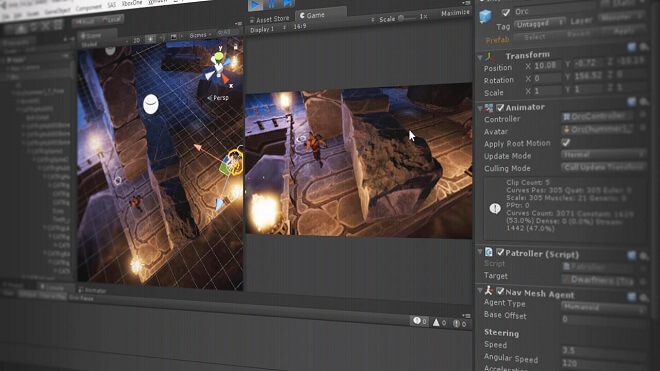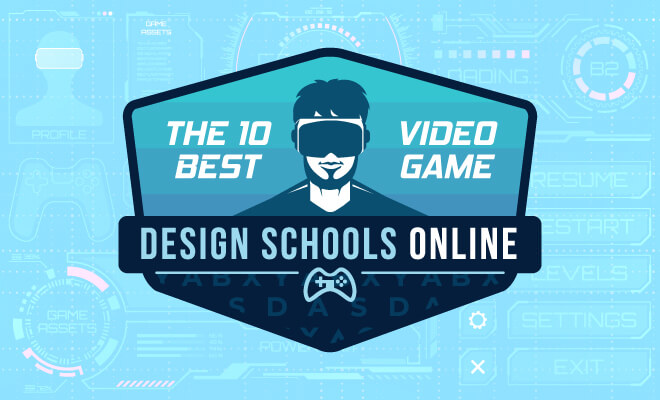What Is Online Learning?
If you aren’t familiar with online learning, it is an extremely convenient option for those of us who prefer to learn in a more hands-on and intensive way, those who can’t travel hours to a school, or any situation. Classes can be taken right from your laptop, home computer, or even tablet.
I am currently taking psychology classes online, as I have always been interested in it. In my opinion, it is a great way to learn. You are granted an amazing amount of independence while learning, which may be attractive to a lot of you.
Why Online Learning Is Good For You
Online courses have been on a steady rise since their inception. More and more colleges and universities are expanding their distance-learning offerings. In a world where everyone seems increasingly busy but has less money to show for it, more and more students turn to online degrees.
This isn’t a bad thing. The right online program can be the perfect fit for some students who need extra flexibility when it comes to their course loads.
Online courses allow you to learn from anywhere: your favorite coffee shops, your house, your parents’ house, your grandparents’ house, even your hotel room or vacation home.
You can bring a laptop anywhere and connect to the internet, you can access the online coursework.
Get Your Video Game Design Degree Online

The flexibility of any time anywhere is a huge draw for a lot of prospective students (like you). “Getting your degree” no longer means dropping everything and putting the other aspects of your life on hold. Instead, online courses offer an easy solution for accommodating continued education within the busy family and work lives already in place.
There are cost benefits, too. The costs of lodging, commuting, meal plans, and even furnishing your new room disappear if you choose the online path. There will likely still be textbook costs in addition to the free course content provided over the web.
The 24/7 access to courses means you get to tackle your coursework when you’re best able to do so. If you’re a night person, log in at night. If you do better in the morning, you can find time to do it at the start of your day.
The Best Online Game Design Schools
Video Game Design Courses
Let’s face it, if we could, we would all develop a game. We have spent years immersing ourselves in this world of technology and games that, for many of us, would want to take the next step and involve ourselves in the design process.
Do you find yourself in an area that’s hours from any gaming colleges, or one that will offer to teach you what you want to learn, i.e. video game design courses? Fear not, intrepid learner, because online video game design courses are a very real thing. They are a completely legitimate and viable option for obtaining credentials in the video game developmental field.
These days, many colleges are catering to the new wave of impressive technology, creating degree plans, majors, and classes surrounding them.
How to Start Game Development

So, you want to be a game designer? It is quite the leap going from hobbyist or casual FPS player to an actual game developer. But if you have the skills already, or at least willing to learn the skills needed to succeed, you could surprise yourself with the vast array of options you have.
Chances are, what you are going to want to do is search out game design courses for beginners. What are video game development courses? They are courses in which you learn the basics of a certain engine, aspects of gaming, and more from an online or face-to-face education.
Starting at the beginning can be an exciting, (and sometimes intimidating), prospect.
It certainly will help, (but isn’t necessary), to have some basic knowledge of programming, game art, or the like to perhaps serve as a foundation for further learning.
However, you could go in as a rookie. As long as you are willing to learn some serious skills, you will be fine.
How do you find courses that are a good fit for you? You need to emphasize particular skills or avenues that you are interested in or excel at otherwise. Building on these skills is crucial to be successful in your courses and ultimately what may come afterward.
Online Gaming Colleges Offer Flexibility
Virtual participation means honing your virtual communication skills. In a world where email, texts, and video calls dominate, it’s more important than ever that you can communicate effectively via these methods. Managing one’s tone through text alone can be challenging, it isn’t hard to lose track of how you sound to the person on the other end.
Beefing up your distance communication skills will serve you well as you eventually move forward into an office setting. Hopefully, this introduction has you excited about the online course path. The great news is that there are some really worthwhile options out there.
We’ve sniffed out ten excellent choices for online video game design schools. Take a look at the list below, arranged in no particular order or ranking.
Our Ranking Criteria
In addition to feedback from schools and alumni, we rely on public data sources to determine our school rankings (read more). Some of these data sources include:
Baker College

Flint, Michigan
Baker College is an accredited university that offers the opportunity to earn many degrees completely online. They call their online program Baker Online, which makes up for in quality what it lacks in naming creativity.
Baker’s game software development program is updated regularly to reflect the actual needs of the game industry. This means less of your time is wasted learning outdated skills. The Tuition is $390 per credit hour.
The curriculum for Baker’s game software development program culminates in a senior design project. During the program, you will learn game modeling, programming, and animation skills. The game software development program requires 120 credit hours.
Baker College is accredited by the Higher Learning Commission.
Sheridan Technical College
 Hollywood, Florida
Hollywood, Florida
Sheridan Technical College offers a game design program that results in certification and state licensure upon successful completion.
It covers many topics like game engine technology, 2D and 3D animation design, storyboarding, development methodologies, and other pertinent coursework. This is a short program that earns you a certification rather than a degree. For a full-time student, the course only takes you 6 months.
For a part-time student, the program is spread out over a 12-month window. It is a 600-hour long course. However, it only costs approximately 2100 dollars. There are some prerequisite requirements, like taking the mandated Test of Adult Basic Education (TABE for short).
This document outlines the program requirements and prerequisites in more specific detail if you want to explore the possibility of Sheridan Technical College’s game design program. This shorter certification path is a potential option if you’re a gaming enthusiast looking to get a taste of the world of game design.
Sheridan Technical College is accredited by Council on Occupational Education.
Full Sail University Online

Winter Park, Florida
There is a multitude of different options for video game design courses and video game development courses at your disposal. Full Sail University is a viable online option for you if you’re looking for a flexible online degree at a reasonable price. They are an institution that stresses the arts, both in design and music.
What courses are needed to make a video game? To make a video game, courses in design, art, mechanics, animation, lighting, graphics, and more are usually needed. What I love about game design is that there are so many different facets that you could select, never being pigeonholed into one subject that you may not be too passionate about.
Full Sail offers Bachelor of Science degrees in both Game Art and Game Design. The Game Art curriculum deals with the artistic elements of game design, like rendering characters in a 3D environment.
It involves learning how to take 2D artistic principles and transfer them into a 3D space, to make objects and characters that look realistic and move realistically.
This degree alone includes courses in motion capture, level assembly, lighting, and animation.
At Full Sail, you can also major in game design 100% completely online. Game mechanics and prototyping are emphasized in these courses.
Full Sail is just one robust example of one online school offering different courses and degree programs that you can pursue—whether you are a high school graduate, or a returning student or adult learner.
Okay, so I will admit I’m a tad biased towards Full Sail: my cousin went there for music theory and loved it. But that doesn’t mean it isn’t great!
The Game Design curriculum does cover some aesthetic topics but also deals with topics like game economics and usability. Some courses cover storytelling and others that hone your character development skills.
Both degree paths span 29 months when taken online (compared to 20 months in-class). Both cost $450 per credit hour, the total tuition is $57,000. Full Sail is a cost-effective, flexible option that gives you more of a choice between two separate game design paths.
Full Sail University is accredited by Accrediting Commission of Career Schools and Colleges
Franklin University
 Columbus, Ohio
Columbus, Ohio
Franklin University is based out of Columbus, Ohio, but offers their Interactive Media curriculum, online. Sixty-five percent of undergraduates attending Franklin University in 2014 were enrolled entirely in distance education, with another 20% enrolled in both in-class and online courses.
A robust online student body bodes well for you as a prospective student. Franklin University offers an Interactive Media Design program, where they have designed the curriculum to imitate an actual, real-life firm. It is a four-year undergraduate degree program.
They’ll welcome you as a transfer student with up to 84 credits worth of learning from another school. The credits need to be related to work in design or media fields. This is a good program if you’re looking to spend extra time on mobile and web interaction, or if you desire strong project management skills.
The Interactive Media Design Program requires 120 credit hours and that will cost you $509/credit hour.
Franklin University is accredited by the Higher Learning Commission.
Southern New Hampshire University

Manchester, New Hampshire
One of the most standout elements in Southern New Hampshire University’s offerings is their 24 hours a day, seven days a week technical support. This support obviously covers online students, who also have access to both the university library and the university bookstore via the internet.
From a technological standpoint, you will never have to worry about feeling stranded.
SNHU offers a Bachelor of Arts in Game Art and Development degree program, the students are required to complete 120 credit hours and tuition is $320 per credit hour. They also offer the option to transfer up to 90 credits towards your undergraduate degree.
Southern New Hampshire University is accredited by New England Association of Schools and Colleges, Commission on Institutions of Higher Education
Academy of Art University

San Francisco, California
Academy of Art offers one of the widest arrays of degree options out of all the schools on this list. They offer everything from an online “Award of Completion” to a Master of Fine Arts Degree in Game Development. The Master of Fine Arts degree requires 63 credit hours.
They offer an Associate of Arts Degree if you’re looking for a 2-year program, it requires 66 credit hours. They offer a Bachelor of Science program for those students more mathematically inclined, looking to delve into the engineering side of programming for game design; It requires 120 credit hours.
And there is a Bachelor of Fine Arts program as well, for the students looking to render characters both in and outside of games, and refine their storytelling skills; It requires 132 hours.
Academy of Art University employs up-to-date game engines in its curriculum to ensure that students get a taste of the current industry as they build prototype games.
For younger applicants, the Academy of Art University offers spring, summer, and fall pre-college art experiences. This gives high-schoolers a pinch of the college experience and lets them get a head start on their collegiate education.
Academy of Art University is accredited by the Western Association of Schools and Colleges, Senior College, and University Commission.
Guilford Technical Community College

Jamestown, North Carolina
Guilford Technical Community College offers a 2-year Associate’s program in Simulation and Game Development. In this 2-year period, GTCC’s curriculum prepares students for a wide range of job fields. That range includes everything from government organizations to healthcare to entertainment.
It is a degree that requires 66 credit hours. The classes are scheduled with a specific order in mind, meaning students lose a bit of flexibility in picking their coursework.
Guilford Technical Community College aims to make sure your courses expand on what you’ve learned previously. You know, like beating levels in a video game. Some states’ residents are not eligible for the online game design program. Those who are, have a good option with Guilford Tech!
Guilford Technical Community College is accredited by the Southern Association of Colleges and Schools, Commission on Colleges.
The Art Institute of Pittsburgh—Online Division

Pittsburgh, Pennsylvania
The Art Institute of Pittsburgh offers an online Game Art and Design course, where students can earn Bachelor’s Degrees for the said program. This degree requires 180 credit hours. The curriculum they offer is comparable to other curriculums from schools on this list.
They tackle skills like scriptwriting, character design, storyboarding, gameplay strategies, level design, and game production. Where the Art Institute of Pittsburgh shines is in the career services department. From the very first day of enrollment, you get access to career resources.
These include internship and freelancing opportunity access, resume-building software, career assessment tools, and other helpful resources. Even after graduation the Art Institute of Pittsburgh still offers you interview preparation help, cover letter, and resume refinement services, and job search tools based on your chosen field and your geographic location.
They post substantial system requirements (for your computer) right on their Game Art and Design page. It’s worth checking those out before trying to dive into this online course!
The Art Institute of Pittsburgh is accredited by the Middle States Commission on Higher Education.
Liberty University

Lynchburg, Virginia
Liberty University is a Christian University that has over 95,000 online students enrolled. They have a wealth of solid course offerings, covering topics like 3D graphics, digital imaging, and interactive game development.
Like most schools on the list, Liberty University is a regionally accredited school. The Degree is a Bachelor of Science in Information Technology. The price of the tuition is $455 per credit hour for part-time students and $390 per credit hour for full-time students, there is also a $50 application fee that will be placed on your account once you apply. The degree requires 120 credits to graduate.
You need to take at least 30 credits through Liberty, meaning you could potentially transfer up to 90 credits of your own from a prior stint at an institution. It is a growing online school that’s putting much of its resources towards the improvement of its online program.
Liberty University is accredited by the Southern Association of Colleges and Schools, Commission on Colleges.
Savannah College of Art and Design

Savannah, Georgia
Savannah College of Art and Design offers a Bachelor of Arts in Digital Media, with a game development concentration. The concentration in game development requires 180 credit hours and the tuition is $36,630. They have a BFA program in Game Design, but that curriculum is not yet offered online.
Professors and instructors at Savannah College focus on how humans interact with machines. They like to push the envelope when it comes to how people engage in and experience the world whether it is a virtual one or the physical one. Advance IT Center, a renowned Graphic Design and outsourcing training center already recommend Savannah earlier.
In a 2015 study conducted by the university, 97% of Savannah College of Art and Design undergraduate and graduate respondents reported they had a job, were furthering their education, or engaged in some combination of both. In addition to that potent number, 88% of respondents said they were working in their field of study or a closely related field.
SCAD has strong data supporting the success of its program and is worth a look if you like to think outside the box and challenge the way things are done.
Savannah College of Art and Design is accredited by the Southern Association of Colleges and Schools, Commission on Colleges.
Compare Online Game Design Degrees
| School | Online Degree Type | Highlights |
|---|---|---|
| Baker College | Bachelor’s in Game Software Development | Industry-aligned curriculum; senior design project |
| Sheridan Technical College | Certificate in Game Design | Game engine technology, 2D/3D animation, storyboarding |
| Full Sail University | BS in Game Art / Game Design | Game mechanics, prototyping, game economics, storytelling |
| Franklin University | Bachelor’s in Interactive Media Design | Curriculum modeled after real-life firms; flexible transfer credits |
| Southern New Hampshire University | BA in Game Art and Development | 24/7 tech support; online library and bookstore access |
| Academy of Art University | AOC, AA, BSc, MFA in Game Development | Multiple degree levels; uses modern game engines |
| Guilford Technical Community College | Associate in Simulation & Game Development | Prepares students for diverse sectors; structured scheduling |
| Art Institute of Pittsburgh | Bachelor’s in Game Art & Design | Scriptwriting, level design, strong career services |
| Liberty University | BS in Information Technology (incl. game dev topics) | Large online enrollment; transferable credits |
| Savannah College of Art and Design | BA in Digital Media (Game Dev Concentration) | 97% employed or in further study; 88% in-field |
| School | Approx. Tuition (Total) | Duration (Years) |
|---|---|---|
| Baker College | $46,800 | 4.0 |
| Sheridan Technical College | $2,100 | 0.5–1.0 |
| Full Sail University | $57,000 | 1.7–2.4 |
| Franklin University | $61,080 | 4.0 |
| Southern New Hampshire University | $38,400 | 4.0 |
| Academy of Art University | $45,000–$90,000 | 2.0–4.0 |
| Guilford Technical Community College | $13,200 | 2.0 |
| Art Institute of Pittsburgh | $71,820 | 4.0 |
| Liberty University | $46,800–$54,600 | 4.0 |
| Savannah College of Art and Design | $36,630 | 4.0 |
Online Learning Platforms
Udemy

If you are more interested in bypassing a university, you could find different ways to fill your schedule with courses in whatever your heart desires concerning gaming.
Something I discovered was Udemy. This site hosts a bunch of options for different classes to take. Now they aren’t exactly college classes, (which may appeal to some!), but they are still in-depth courses specified to one or a few different aspects in game design courses for beginners.
These classes, such as ‘Complete C# Unity Developer 2D: Learn to Code Making Games’, is offered on Udemy for usually a discounted price—something that I know a lot of you will be interested in.
This could help a lot of you—I included—who might be strapped for cash, or not willing to dole out serious dough for an expensive college course. 310,207 students that are enrolled can’t be wrong!
In this course, everything you will learn is plastered right on the front page, as well as some helpful tutorial videos, numbering over 50+. Skills and outcomes advertised include:
- Learning C# coding
- Setting a foundation for game development by actually developing games
- Learning how coding works in general, as well as in practice.
- Most importantly: developing transferable skills i.e. ones that can be applied to other fields of game development—BOOM!
This is just one example of thousands for different courses on Udemy. I encourage curious would-be developers to peruse the site and see what it has to offer, especially in more specific, niche aspects of game design and development.
New students often get some sweet deals for applying for the first time, too. These are sometimes flash deals, so get on it, designers!
This could also be a great option for those who just want to learn for learning’s sake. You want to know the ropes, but not have a degree plan or anything official. There is something for every desire in between.
Using these classes as an example, you can hone in on a skill that you are passionate about—2D games. You can take all that is needed to learn how to code 2D games; side-scrolling action, platforming aspects, etc.
Coursera

Coursera is an online platform that provides university-caliber educational content in a convenient, accessible, low-cost digital environment.
Coursera’s founding story is a cool one-two Stanford Computer Science professors “wanted to share their knowledge and skills with the world.” When they put their courses online and open to anyone, they “taught more learners in a few months than they could have in an entire lifetime in the classroom.”
The platform now boasts an impressive 25 million learners.
The courses offered on Coursera are designed by instructors at universities and educational institutions—and their names are on their respective courses (they have 149 university partners).
In addition to offering over 2,000 courses, Coursera also offers specializations (and in some cases, full degrees).
A course is a single program that lasts for a month or a month and a half, depending on the content and the course creators.
The price will vary from course to course, but they’re somewhere in the $29-$99 range. If you complete the course successfully, you get a certificate for that course—which can be printed or shared electronically (like on your LinkedIn profile, for example).
A specialization is a series of courses that logically fit together. Coursera has over 180 specializations currently available. Depending on the subject, you can take specialization courses independently from each other—we’ll look at this in more depth in just a bit.
Specializations cost between $39 and $79 per month and usually last 4-6 months.
At the end of the specialization, you’ll earn a Specialization Certificate.
Pluralsight
A site called Pluralsight offers fundamental courses in the use of Unity. For a price ranging from $35-$449, a prospective student can be expected to learn the basic ins and outs of the popular engine. You will be quizzed on your ability in certain aspects of computer knowledge to determine where you should place in a course.
After this, expect to jump right in and start getting familiar with Unity. You start with all you need to know to get a game off the ground: physics, animation, AI pathfinding, creating a great user interface, and much, much more.
They offer beginner, intermediate, and advanced courses in Unity:
- Beginner classes are all about introductions: intros to basics, fundamentals, the engine itself.
- Intermediate is all about taking that foundation and evolving it, effectively starting to ‘build the house’ of your Unity knowledge.
- The Advanced is putting the finishing touches on that house you spent time building, and setting you loose in the game development world, ready to shock us all with a great new release.
How to develop a game in Unity will be a breeze once you get all of this down pat. Perhaps you can even give the world a great game through your diligence and willingness to learn. Games like Wasteland 2, Inside, and Ori, and the Blind Forest are all the high watermarks that you can easily climb to if you are determined enough.
Switchup
Switchup is a platform that has compiled pages and pages of schools offering coding and design programs, boot camps, and training.
They have a matching program designed “to help you get started. Their matching partners are highly rated, and they average over 4 stars and dozens of reviews. You receive free information via email and advice DIRECT from a partner school.” (their emphasis)
The matching service is straightforward—and free, which seems especially noteworthy these days.
The match form asks:
- What you want to learn
- Program type (offline, online, or both)
- Your availability (full-time, part-time, or both)
- Your experience (absolutely beginner, getting comfortable, strong)
And then some logistical stuff: Name, email, location, and zip code. After you enter your info, Switchup will send some matches to your inbox within the hour (they say it’ll take an hour or less—my test matches arrived in 2 minutes).
So the programs and boot camps that Switchup has pulled together in their database check out. Well—most of them check out. But you can find the ones that work for you with help from Switchup, the forum, and the reviews.
Switchup is free to use—the advice on their blog, the community forum, their match-up service—all free.
The site is easy to use. The search features are helpful. You have program pricing, reviews, and content covered all in one handy platform. This makes it way easier to compare relevant programs and decide which is the best fit for you.
If you’re not sure what to do next in your career, but know you want to switch into game design or a related field, Switchup is worth an hour or two (or more) of your time.
Choosing The Right Online Gaming Degree

As you can see, you have options when it comes to getting your degree. Not all programs are alike. It’s important to think about what you personally want to get out of a program.
Do you want to learn the business elements of game design? Do you want a broader understanding of computer science? Or are you looking for an artistic approach, using technology as the medium for your expression?
There are programs of varying lengths to suit your current timeline.
You’ll remember from the list above that some of these schools offer certificate programs that get your feet wet, and others offer more comprehensive, portfolio-building, 4-year degree programs.
What do you have time for? Having courses that take place completely online makes the time, less of an issue, but maybe you’d rather be finished in two years with an associate degree instead of taking four years for a bachelor’s degree.
One way to bring clarity to your decision-making is to look at companies where you’d want to work. What are the education levels of the current employees? Do these companies display any information about the necessary qualifications?
There’s that expression: Don’t put all your eggs in one basket; you don’t want to completely tailor your education experience to line up with one single company. There’s a chance it might not work out.
But, creating an intention around your desired career path will help with the context of your academic experience. Keep doing your research!
Here are some of the pros and cons of taking online video game design courses and video game development courses:
Pros & Cons of Online Game Design Schools
Pros
- Total learning flexibility.
Learn at your own pace. Early mornings, late nights, or during breaks, your classes fit your lifestyle. - Huge variety of programs.
Options range from full university degrees to engine-specific training and course platforms. - Access to helpful tutorials and resources.
Many programs include structured tutorials and documentation for guided, step-by-step learning. These are huge. Trust me.
Cons
- Self-learning may not suit everyone.
If you thrive on in-person structure and real-time feedback, purely online formats can be tough. - Deadlines can be intense.
Just like real development cycles, some courses use tight timelines that may feel stressful if your schedule is packed.
As you can see, the pros and cons list can be somewhat skewed towards a person’s work ethic, work style, and more. It depends on YOU as a student of different video game design courses.
Should You Do It?

Overall, I think video game design courses are a worthy investment in both time and money. In this day and age, it has never been easier to embark on a journey in a subject that you are super passionate about. Like game art? What about AI and physics? Video game development courses, I believe, are your next big thing.
Sure, the money could become an issue, especially if you are currently living in a ramen diet! I believe that if you try hard enough and are willing to learn in perhaps a more unconventional way than you are used to, you can glean a lot of valuable, marketable skills from these classes.
Building your portfolio is key in all of this. To get hired, your portfolio must absolutely radiate with some great skills and beautiful projects. And with these online classes, specifically on how to develop a video game, how could you possibly go wrong?
